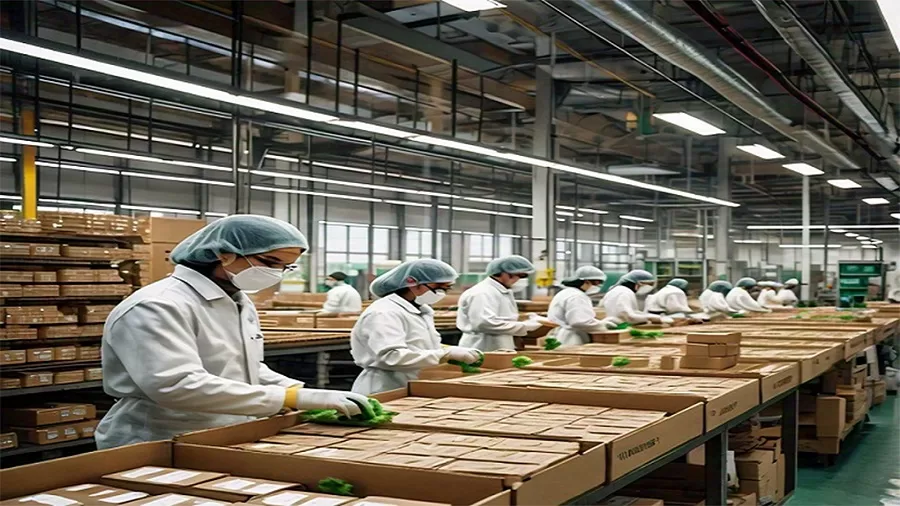Food & Beverage
Eco-Friendly Packaging: The Green Revolution Transforming the Food and Beverage Industry

- The food and beverage industry is increasingly using eco-friendly packaging to address environmental concerns and reduce waste.
- Innovative materials such as biodegradable, compostable, and plant-based alternatives to standard packaging are becoming increasingly popular.
- Despite costs and limited infrastructure, sustainable packaging provides long-term benefits such as reduced environmental impact and increased brand image.
In today’s ecologically concerned world, the demand for eco-friendly packaging in the food and beverage industry is increasing. As people become more aware of their environmental impact, businesses are reconsidering their packaging tactics. With sustainability at the forefront, businesses are rapidly implementing new solutions to decrease waste, preserve resources, and promote a healthy planet. These changes are more than just a trend; they are required to meet customer expectations and regulatory needs.
Innovative Alternatives for Sustainable Packaging
To address these environmental concerns, the food and beverage industry is increasingly turning to eco-friendly packaging options. One popular technique is to employ biodegradable and compostable materials sourced from renewable resources such as plants and microbes. These materials naturally disintegrate, decreasing landfill waste and minimising environmental effects. Companies are also looking into recyclable materials, such as advanced glass and aluminium designs that can be easily processed and reused.
Reusable packaging methods are becoming popular, in which products are packaged in containers that can be returned, cleaned, and refilled. This method not only minimises the demand for single-use packaging but also promotes the circular economy. Another trend is minimalist packaging, which aims to reduce the amount of material used in each product. Businesses can save money and reduce waste by removing superfluous components.
Success Stories in Sustainable Packaging
Several companies are leading the way in sustainable packaging innovation. Coca-Cola, for example, has pledged to make all of its packaging 100 per cent recyclable by 2025. The beverage company has also introduced plant-based bottles and expanded its investment in recycling infrastructure. Danone is looking into plant-based materials for yoghurt containers and has introduced reusable water bottles to promote environmental habits. Innocent Drinks, a UK-based smoothie brand, has launched a “bottle for a bottle” campaign, urging customers to recycle their empty bottles in exchange for a new one.
Challenges in Transitioning to Eco-Friendly Packaging
The transition to sustainable packaging is not without difficulties, despite its many benefits. Particularly for smaller businesses, the upfront expense of biodegradable and compostable products can be a major deterrent. It is also challenging to fully implement these solutions in many locations due to a lack of infrastructure for composting and recycling. To guarantee that these materials have the desired environmental impact, it is also essential to educate customers on appropriate disposal techniques and the advantages of eco-friendly packaging.
Another problem is shelf-life and durability. Although biodegradable and plant-based materials are more environmentally friendly, they do not necessarily offer the same degree of security as conventional packaging. For food and beverage items that need to be stored for an extended period or shielded from environmental elements like light and moisture, this restriction may be an issue.
The Future of Eco-Friendly Packaging in the Food and Drink Industry
The future of packaging in the food and beverage industry appears bright, as more businesses adopt sustainability. The emphasis is shifting to solutions that not only minimise waste but also improve the consumer experience. Smart packaging is an emerging concept that employs technology to check the freshness of food products. This advancement reduces food waste by providing consumers with real-time information about the condition of the products they purchase.
Plant-based plastics, which are derived from renewable resources such as corn and sugarcane, are also becoming popular. These bioplastics resemble standard plastic in appearance but are more environmentally friendly and may be composted or recycled. As technology advances, new materials and techniques will drive the advancement of eco-friendly packaging.
A Greener Future for Food and Drink Packaging
Eco-friendly packaging is no longer an option; it is necessary for addressing the environmental issues linked with traditional materials. The food and beverage industry is taking steps towards a more sustainable future by emphasising biodegradable, compostable, and recyclable solutions. Businesses that invest in these advances not only minimise their environmental impact but also improve their brand image by appealing to an expanding market of eco-conscious consumers.
As regulations governing waste management and carbon emissions tighten, companies that pioneer sustainable packaging will gain a competitive advantage. The transition to environmentally friendly techniques is altering the industry, paving the way for a greener, cleaner planet. The path may be difficult, but the benefits of a commitment to sustainability are enormous, offering a future in which creativity and environmental stewardship go hand in hand.

























































